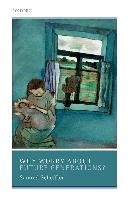The things we do today may make life worse for future generations. But why should we care what happens to people who won't be born until after all of us are gone? Some philosophers have treated this as a question about our moral responsibilities, and have argued that we have duties of beneficence to promote the well-being of our descendants. Rather than focusing exclusively on issues of moral responsibility, Samuel Scheffler considers the broader question of why and how future generations matter to us. Although we lack a developed set of ideas about the value of human continuity, we are more invested in the fate of our descendants than we may realize. Implicit in our existing values and attachments are a variety of powerful reasons for wanting the chain of human generations to persist into the indefinite future under conditions conducive to human flourishing. This has implications for the way we think about problems like climate change. And it means that some of our strongest reasons for caring about the future of humanity depend not on our moral duty to promote the good but rather on our existing evaluative attachments and on our conservative disposition to preserve and sustain the things that we value. This form of conservatism supports rather than inhibits a concern for future generations, and it is an important component of the complex stance we take toward the temporal dimension of our lives.

